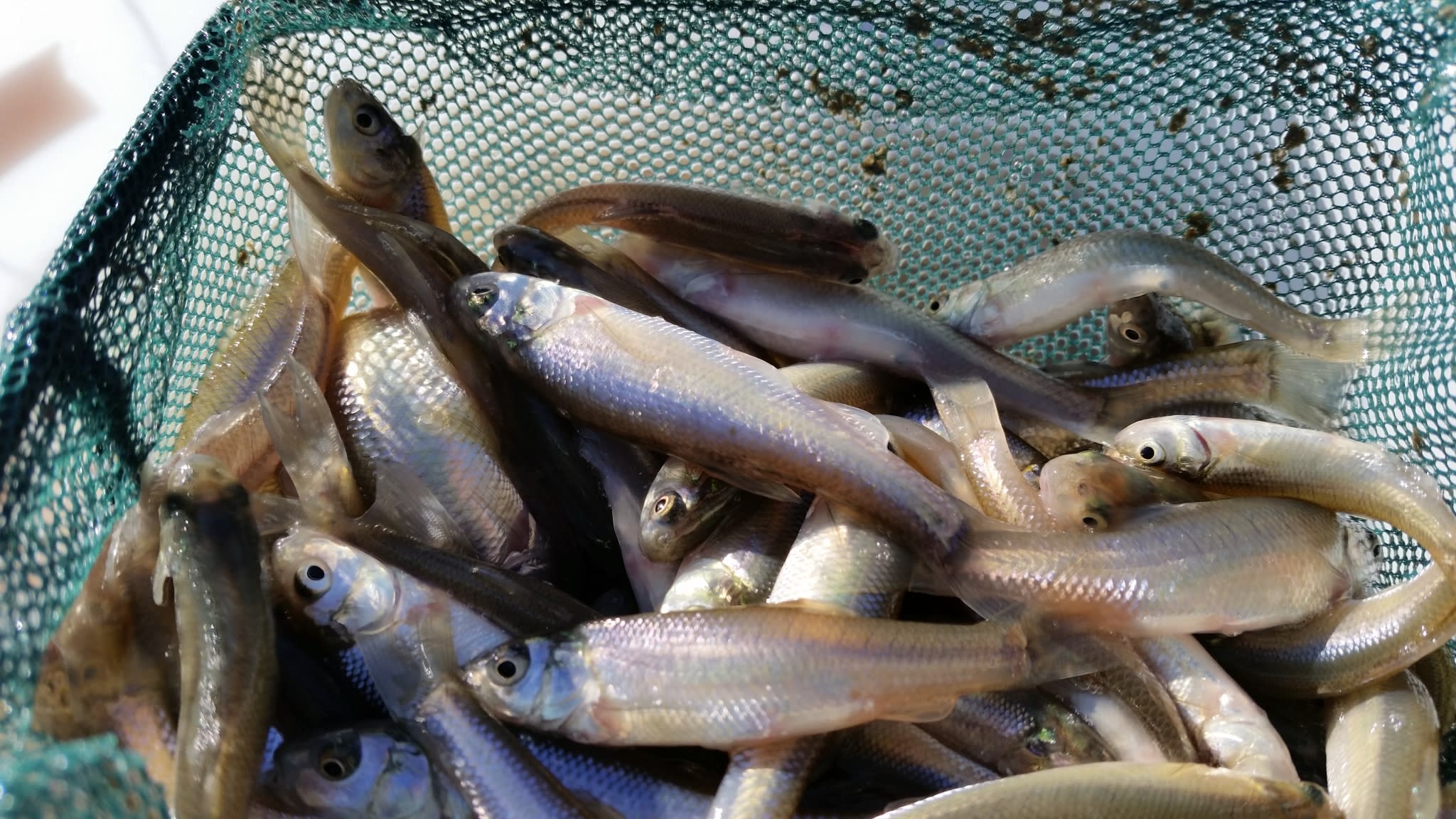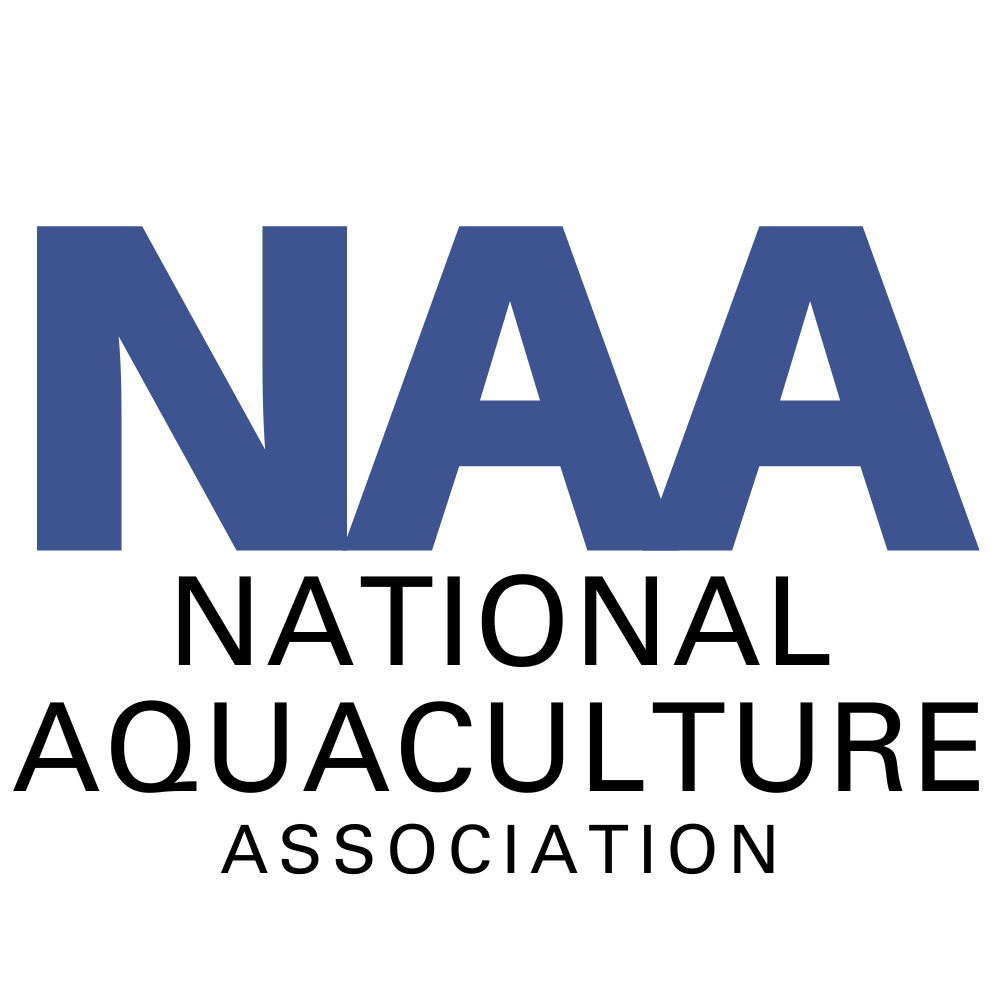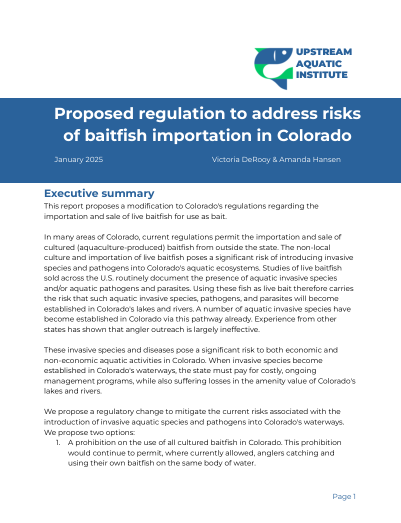
Animal Rights Activist File Colorado Regulatory Petition to Ban Live Baitfish Imports
The Colorado Aquaculture Association and National Aquaculture Association collaborated to analyze a petition filed by an animal rights organization, Upstream Policies, with the Colorado Parks and Wildlife requesting new state regulations to ban live bait fish importation. To access these documents, click on “petition” and “analysis.”
Upstream Policies presented three flawed analyses (A Colorado angler survey, a published paper “Untangling the impact of live baitfish restrictions on recreational fishing participation in the United States,” and a summary of species introduced to Colorado) in support of their petition. In each instance critical information was not included that points to the falsity of their claims.
Read the Petition Read COAA / NAA's Analysis
Angler Survey
Upstream Policies cited Colorado Parks and Wildlife surveys and their own recreational fishing survey to argue “Live baitfish appears to be a bait of choice only for a minority of Colorado’s anglers.” The agency and petitioner estimate 13% of anglers preferred live bait during 2023 and 2024; however, the petitioners neglected to report that during 2023 the agency sold 830,000 fishing licenses. For that year, the “minority” was an estimated 107,900 Coloradans and visitors who paid for the privilege to fish. If these recreational anglers stopped fishing, a conservative estimate of annual loss in collected fees would be $5,975,502. The fees support the operation of 19 fish hatcheries, where over 90 million fish per year are bred, hatched, reared and stocked for recreational fishing.
Fishing License Effect
The “Untangling…” paper is a severely flawed analysis. Upstream Policies argued recreational fishing is not impacted when live bait fish are banned. They selected as a response variable recreational fishing licenses which are required whether a citizen uses live or artificial baits. The four-case study states they examined (Colorado, Maine, New York and Vermont) which have restricted or prohibited live baitfish imports continue to allow fishing with live bait fish. They were wrong in concluding fishing is not affected by live baitfish regulations by the number of issued licenses unless there were specific licenses for each bait type (artificial, live or dead).
Introduced Species
Upstream Policies utilized the on-line U.S. Geological Survey Nonindigenous Aquatic Species Database to report “So far, in Colorado, 27 aquatic species have been introduced by the bait trade.” A closer examination revealed this is not true. None of the fish, crayfish or salamander were introduced to Colorado through the commercial bait trade. Commercial bait fish, as a potential pathway for species introduction, is adequately regulated and is of low introduction risk to Colorado.
Upstream Policies
Upstream Policies aka Upstream Aquatic Institute is a Delaware-based nonprofit created, supported and funded by a UK-based philanthropic organization focused on creating animal rights advocacy nonprofits. Upstream Policies attempted legislation in New York and New Hampshire to ban live baitfish importation based upon a spurious baitfish pathogen pilot study. Those efforts failed because of in-state opposition informed by NAA analysis. The New Hampshire bill was voted down, 15-0, in committee. The New York legislation has been referred to committee and is not expected to move.
Please contact the NAA Office at naa@nationalaquaculture.org for additional information.


